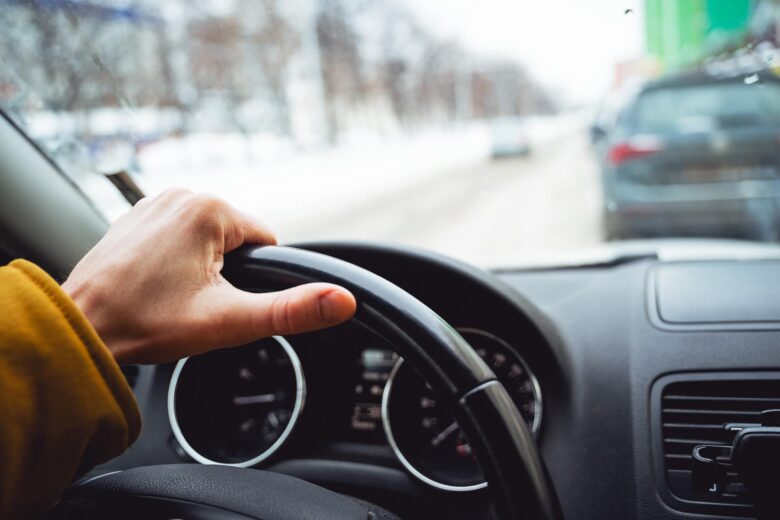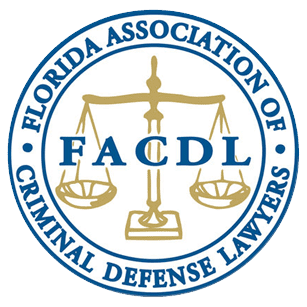
It only takes one moment of bad judgment to find blue lights flashing behind you on Tamiami Trail. If officers discover a child under 18 in the vehicle and allege you were impaired, the stakes rise sharply. Florida law treats a DUI with a child passenger as an “enhanced” offense, exposing you to higher fines, longer jail time, and mandatory ignition‑interlock installation.
If you or someone you love is facing this charge, call 941-363-7900 for a free consultation with Erika Valcarcel, Criminal Defense Lawyer, P.A., a seasoned Sarasota DUI defense attorney.
Florida Law on DUI & Child‑Passenger Enhancements
Under § 316.193(4), Florida Statutes, anyone convicted of DUI while accompanied by a person younger than 18 faces enhanced punishment. The same subsection also elevates penalties when a driver’s blood‑alcohol content (BAC) is 0.15 g/dL or higher.
How Penalties Increase for a DUI With a Child in the Car
A first‑time DUI in Florida usually brings a fine between $500 and $1,000, up to six months in jail, and an administrative driver’s‑license suspension that can last a year. When a child under 18 is in the car, the same conduct is treated as an enhanced DUI.
That enhancement nearly doubles the exposure: fines jump to $1,000–$2,000, the maximum jail term rises to nine months, and a six‑month ignition‑interlock device becomes mandatory, even for a first conviction. Repeat DUI offenses involving a child can escalate the case to a felony DUI offense, which may result in prison time and long-term consequences.
How a High BAC Makes DUI Charges Worse
If police record a BAC of 0.15 or higher or find a child in the car, prosecutors may seek the same enhanced penalties: higher fines, longer maximum jail, and extended interlock periods. Watch officers’ paperwork closely; an error in the BAC reading or breath‑test procedure can create a key defense.
Potential Penalties for a DUI with a Child Passenger Present
Increased Fines
Florida Statute § 316.193(4) boosts first‑offense fines to $1,000–$2,000, with second and third convictions rising to $4,000 or more.
Jail Time
A judge may impose up to nine months in the county jail for a first conviction. Subsequent convictions within ten years can lead to 12 months or even felony‑level prison sentences.
Driver’s‑License Suspension
The Department of Highway Safety and Motor Vehicles (DHSMV) will impose an administrative suspension starting at six months. A refusal to submit to a breath test triggers a one‑year suspension, separate from any criminal penalties. Learn more about protecting your driver’s license after a DUI.
Vehicle Impoundment
Courts must impound or immobilize the defendant’s vehicle for a minimum of 10 days after conviction; longer periods apply for repeat offenders.
DUI School & Substance‑Abuse Evaluation
Completion of a state‑approved DUI course and a substance‑abuse evaluation is required before license reinstatement. Treatment follow‑up may also be ordered.
Ignition‑Interlock Device
Even on a first conviction, the judge must order a six‑month ignition‑interlock installation. A second conviction requires two years of interlock use.
The 10‑Day Rule for Your License
Florida law allows just 10 calendar days from your arrest to request a formal review hearing with the Florida Department of Highway Safety and Motor Vehicles (DHSMV). If you miss this window, your license will be automatically suspended, often before your criminal court date is even set.
Our office acts quickly to file this hearing on your behalf, request a temporary driving permit, and begin gathering evidence—such as police reports, dashcam footage, and officer training records—to build your defense.
Other Potential Collateral Consequences of a DUI with a Child Passenger
The effects of a DUI with a child in the car extend well beyond the courtroom. You may be subject to a Department of Children and Families (DCF) investigation, especially if you have shared custody or visitation rights. A conviction can lead to higher insurance premiums, mandatory FR44 high-risk coverage, and job-related consequences.
Professionals in healthcare, education, and childcare may be required to self-report the conviction to their licensing boards. Some boards may impose sanctions, require counseling or rehabilitation, or suspend or deny license renewals. Additionally, international travel restrictions may apply—Canada, for example, often denies entry to individuals with recent DUI convictions that involved children or elevated BAC levels.
Defenses & Strategies a Sarasota DUI Lawyer Can Use
Every DUI case is different, but these are common angles we explore:
- Illegal Traffic Stop – Was the officer’s reason for the stop valid under the Fourth Amendment?
- Field‑Sobriety & Breath‑Test Errors – Equipment maintenance logs, officer training, and medical conditions can undermine accuracy.
- No “Actual Physical Control” – If the car was safely parked with the engine off, impairment alone may not equal DUI.
- Challenging Child‑Passenger Status – Establishing the passenger’s age is the state’s burden; lack of proof can reduce charges.
- Negotiated Reductions – We often seek a plea to reckless driving or other DUI sentencing alternatives, eliminating many collateral effects.
Why Local Sarasota Court Experience Matters
Sarasota DUI cases are heard in the Twelfth Judicial Circuit, and each judge handles discovery disputes and plea offers differently. A lawyer who knows these nuances can better challenge weak evidence, negotiate favorable plea terms, and help you avoid unnecessary penalties. Attorney Erika Valcarcel has extensive experience defending DUI cases in Sarasota and surrounding areas.
What to Do in the First 24 Hours After a DUI Arrest
- Call a Sarasota DUI Lawyer Immediately. Time‑sensitive evidence and the 10‑day DHSMV deadline require fast action.
- Schedule Your DHSMV Review Hearing. We handle the paperwork and request a temporary permit so you can drive for work.
- Document Everything. Save receipts, take photos of the scene, and write down a timeline before memories fade.
- Identify Witnesses. Anyone who observed your sobriety or the traffic stop can bolster your defense.
- Stay Silent Online. Social‑media posts (even “private” ones) are fair game for prosecutors.
For more advice, read How to Handle a DUI Traffic Stop in Sarasota the Right Way.
Frequently Asked Questions about a DUI with a Child Passenger in FL
What Happens if You Get a DUI With a Child in the Car in Florida?
A DUI with a minor carries enhanced penalties: fines up to $2,000 on a first offense, nine months in jail, six‑month ignition‑interlock, and the same license suspension as a high‑BAC DUI.
Can a Passenger Be Charged with DUI in Florida?
Generally, no. Florida’s DUI statute targets the driver or anyone in actual physical control of the vehicle. However, an impaired adult passenger may face charges such as child neglect if a minor is present and the driver is also impaired.
Can Someone with a DUI Work with Children?
Possibly, but an “enhanced” DUI often triggers stricter background checks. Licensing boards and school districts may require rehabilitation proof or impose waiting periods before you can work in childcare or education.
What Happens if You Are a Passenger and the Driver Gets a DUI?
You are unlikely to be arrested for DUI, but officers may investigate you for allowing a minor to ride with an impaired driver, and DCF can open an inquiry. Having a sober adult take custody of the child is critical.
Speak With a DUI Defense Attorney in Sarasota Today
Every hour counts after an arrest for DUI with a child in the car. Erika Valcarcel has defended Sarasota drivers for more than a decade and understands how to challenge evidence, negotiate with prosecutors, and protect your license.
Call 941-363-7900 or complete our online form for a free, confidential consultation.
View All Blogs

